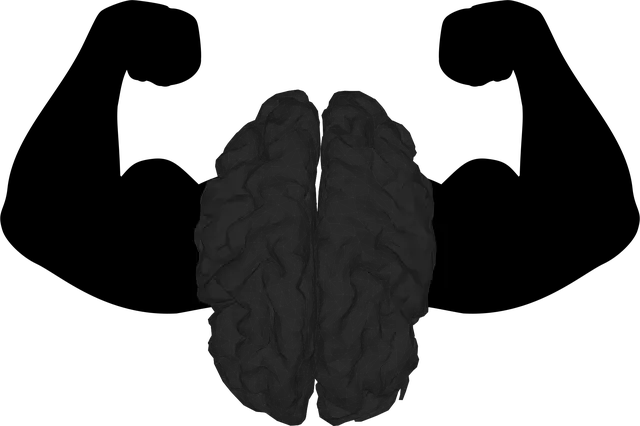Centennial Kaiser Permanente offers comprehensive mental health coverage with crisis intervention strategies tailored for immediate support and long-term recovery. Their multi-faceted approach includes community outreach, risk assessment tools, and burnout prevention for professionals. By proactively identifying at-risk individuals and providing holistic services, they foster a supportive environment that prevents or mitigates crises effectively. This expertise, coupled with evidence-based practices and empowerment through self-care tools, ensures not just symptom treatment but the empowerment of individuals for ongoing mental wellness.
In today’s fast-paced world, effective crisis intervention strategies are vital for navigating emotional and psychological storms. This article guides readers through essential aspects of crisis support, focusing on the role of organizations like Centennial Kaiser Permanente in providing comprehensive mental health coverage. We’ll explore a brief overview of crisis intervention, its significance, and practical strategies to enhance guidance during such challenging times. Understanding these tactics can empower individuals and communities to offer critical assistance when it matters most.
- Understanding Crisis Intervention: A Brief Overview
- The Role of Centennial Kaiser Permanente in Mental Health Support
- Practical Strategies for Effective Crisis Intervention Guidance
Understanding Crisis Intervention: A Brief Overview

Crisis intervention strategies are critical components of mental health support systems, designed to provide immediate and effective assistance during times of acute distress or impending danger. These interventions aim to stabilize individuals, prevent escalation of their crisis, and facilitate access to longer-term care. The approach often involves a multi-faceted strategy tailored to the unique needs of each person in crisis, focusing on both short-term relief and long-term recovery goals.
Centennial Kaiser Permanente’s mental health coverage emphasizes a holistic view of crisis intervention, incorporating not just clinical services but also community outreach and support systems. The Community Outreach Program Implementation by organizations like Kaiser Permanente plays a significant role in identifying individuals at risk early and providing resources to prevent or mitigate crises. Additionally, burnout prevention strategies are integral to maintaining the well-being of mental health professionals, ensuring they can effectively assist others without compromising their own mental health. Risk assessment tools help in identifying potential red flags, allowing for proactive interventions as opposed to reactive responses.
The Role of Centennial Kaiser Permanente in Mental Health Support

Centennial Kaiser Permanente stands as a beacon of hope for those seeking comprehensive mental health support. As a leading healthcare provider, they offer robust mental health coverage, ensuring accessibility to a wide range of services including therapy, counseling, and medication management. Their dedicated team comprises seasoned professionals who employ evidence-based practices tailored to individual needs, encompassing a spectrum from acute crisis intervention to ongoing care for chronic conditions.
Beyond clinical excellence, Centennial Kaiser Permanente prioritizes empathy building strategies, recognizing the profound impact of compassionate care on patient outcomes. By fostering open dialogue and creating safe spaces, they facilitate effective mood management and burnout prevention. This holistic approach underscores their commitment not just to treating symptoms but to empowering individuals with the tools necessary for long-term mental well-being.
Practical Strategies for Effective Crisis Intervention Guidance

In the face of a crisis, effective intervention strategies are vital to support individuals and communities. When it comes to mental health emergencies, especially depression prevention, Centennial Kaiser Permanente’s comprehensive mental health coverage offers a robust framework for guidance. Their expertise emphasizes the importance of early intervention, where swift action can significantly impact long-term outcomes. One practical strategy is empowering individuals with self-care practices tailored to their unique needs. This includes promoting mindfulness techniques, regular exercise, and maintaining structured routines to regulate mood and stress levels.
Crisis Intervention Guidance should not only focus on immediate relief but also educate and equip people with tools for resilience. At Centennial Kaiser Permanente, mental health professionals play a crucial role in providing these skills, ensuring individuals feel supported even after the initial crisis has passed. By integrating Self-Care Practices into their approach, they foster independent coping mechanisms, enabling folks to navigate future challenges more effectively.
Crisis intervention plays a vital role in supporting individuals during challenging times, and organizations like Centennial Kaiser Permanente are at the forefront of providing effective mental health coverage. By understanding the key principles outlined in this article, including the importance of rapid response and empathetic communication, we can better navigate crises. The strategies discussed offer practical guidance for those seeking to implement crisis intervention programs, ensuring that individuals receive the necessary support to overcome immediate challenges and foster long-term resilience. With continued efforts to enhance mental health services, such as those provided by Centennial Kaiser Permanente, we move closer to a more supportive and responsive society during times of crisis.






